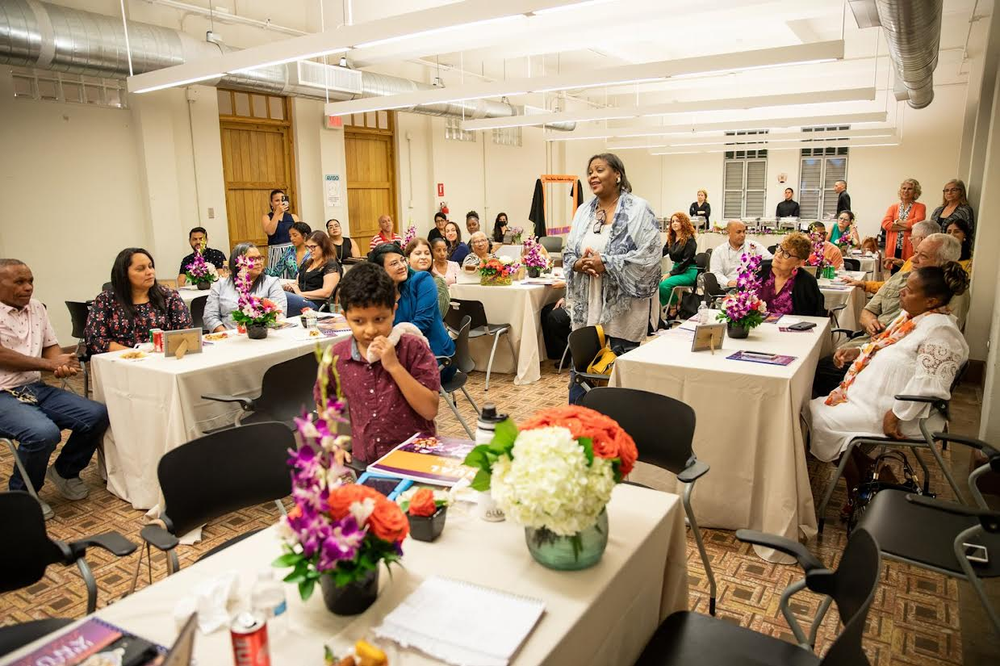
---
On Thursday, community leaders and organizations called on gubernatorial candidates to incorporate into their platforms the numerous special communities in Puerto Rico that are currently caught in legal uncertainty due to a regulation that effectively renders them illegal.
These community representatives claimed that the predicament arises because the Office for Socioeconomic and Community Development of Puerto Rico (ODSEC, in Spanish) failed to consider them during the formulation of Regulation 9533, which dictates to the communities the government’s blueprint for their organization, potentially jeopardizing their access to services and economic resources.
“They have stripped rights from the special communities,” stated Jannette Lozada Sabastro, a seasoned community leader from Valle Hill in Canóvanas. “There is talk of a democracy that has been stifled by this new regulation. The mayors and the director of ODSEC will select the community leaders, and that is appalling.”
Alongside Lozada, other community leaders and representatives from the non-profit Firmes, Unidos y Resilientes con la Abogacía (FURIA Inc.) criticized how the ODSEC enforced the Regulation for the Establishment of Community Boards, Regulation 9533, which they call an affront.
In a collective manifesto, these groups are advocating for the repeal of the regulation to promote community self-governance and genuine collaboration with the neighborhoods.
“The communities have been left in a state of legal uncertainty as, because of the Regulation, the ODSEC could challenge the legitimacy of existing community organizations, restrict their self-managed organizational efforts, and claim they lack the right to the support they seek,” remarked attorney Juan Capella Noya from FURIA.
Adianez Vélez, an associate attorney at FURIA, emphasized: “The agency itself, in response to a request for information, clarified a few weeks ago that no community in Puerto Rico currently has a community board compliant with Regulation 9533.”
Vélez mentioned that the disputed regulation, which communities have challenged in court twice for being undemocratic, mandates all community boards to receive approval from ODSEC and to be elected in an assembly called by the agency. However, the office tied to the Governor’s Office “lacks the capacity” to organize these numerous assemblies and has yet to convene any, according to the FURIA associate attorney.
“The error lies not just in overlooking the communities in the process but also in not considering the available resources required for implementing this unjust regulation,” Vélez stated.
Capella Noya highlighted that “[o]ver the last two and a half years, we have sought meetings with ODSEC multiple times and have only been granted one in 2023.”
“We have also not received an official list of the special communities or information regarding the agency’s initiatives to educate the communities and implement the regulations. None of this has been made public, reflecting a lack of transparency,” he asserted. “We might need to resort to court for a third time to obtain information. This office fails to serve its intended purpose if it cannot engage with the communities.”
Maritza Ocasio, a community leader from the Usubal sector in the Torrecilla Alta neighborhood of Canóvanas, accused them of “discriminating against us as they refuse to assist us in repairing homes, claiming that according to ODSEC, we are not a special community.”
“We reside in the Nuevo Hogar Seguro Project, featuring cement houses funded through a project supported by FEMA, yet all the residents originated from the special community of San Isidro,” she remarked. “It was a project aimed at escaping poverty, and now they fail to recognize us as a vulnerable population.”
The communities will be gathering signatures for the “Community Manifesto for Respect and the Right to Community Self-Management,” wherein they denounce Regulation 9533, which was approved on February 1 of this year, even after it was challenged in court twice by community organizations from Canóvanas, Loíza, Naguabo, Lajas, Caguas, and San Juan for infringing on rights of expression, association, and community involvement. The regulation permits ODSEC to intervene in assemblies, mandates their officials’ presence to elect boards, restricts the service terms of leaders, and enforces naming conventions for organizational bodies, among other limitations affecting community groups.
“This law was purportedly to assist communities. Our proposal to all political candidates is that the individual who secures the governorship should appoint an Executive Director for that agency, linked to La Fortaleza, with a background connected to the communities. It is crucial to rethink the role of ODSEC; what is essential is for those in charge to take initiative.
“We must engage directly with the communities,” stated Vélez, the FURIA associate attorney. “That is currently not occurring. There is a great deal that can be accomplished if meaningful dialogues are held with the Special Communities.”
